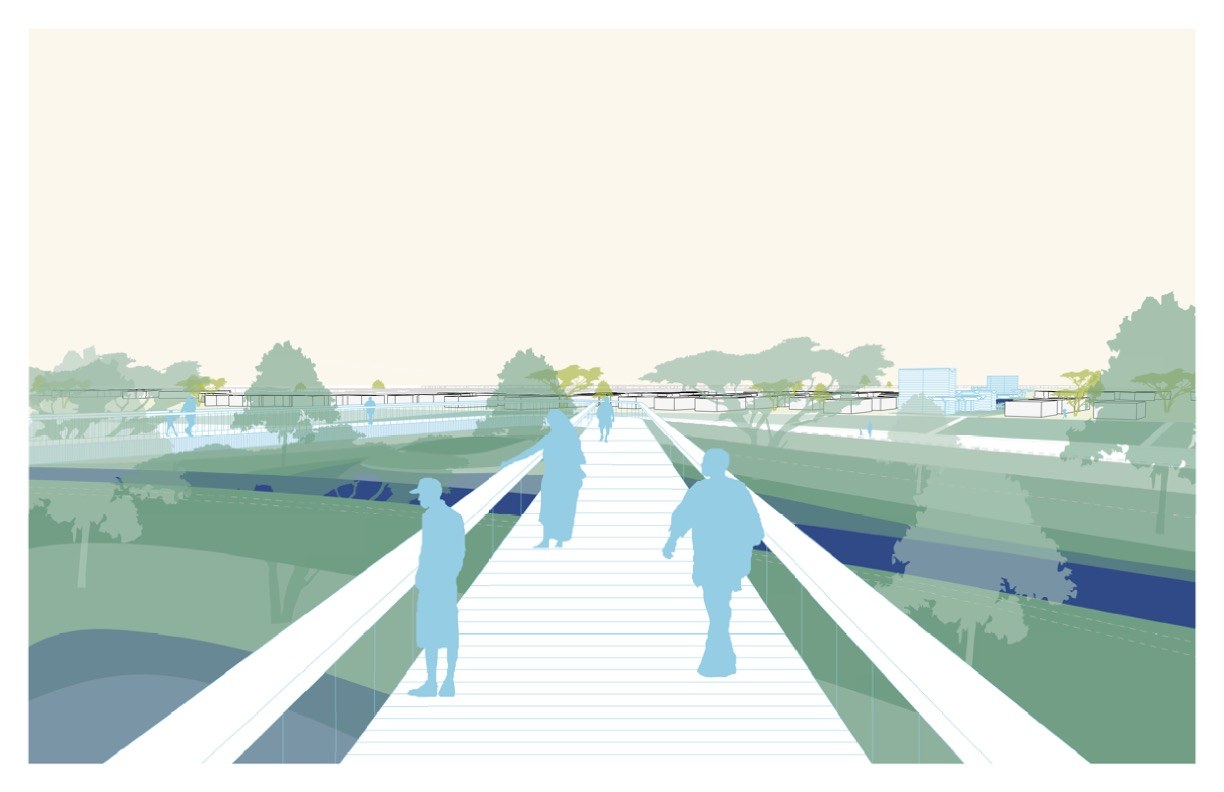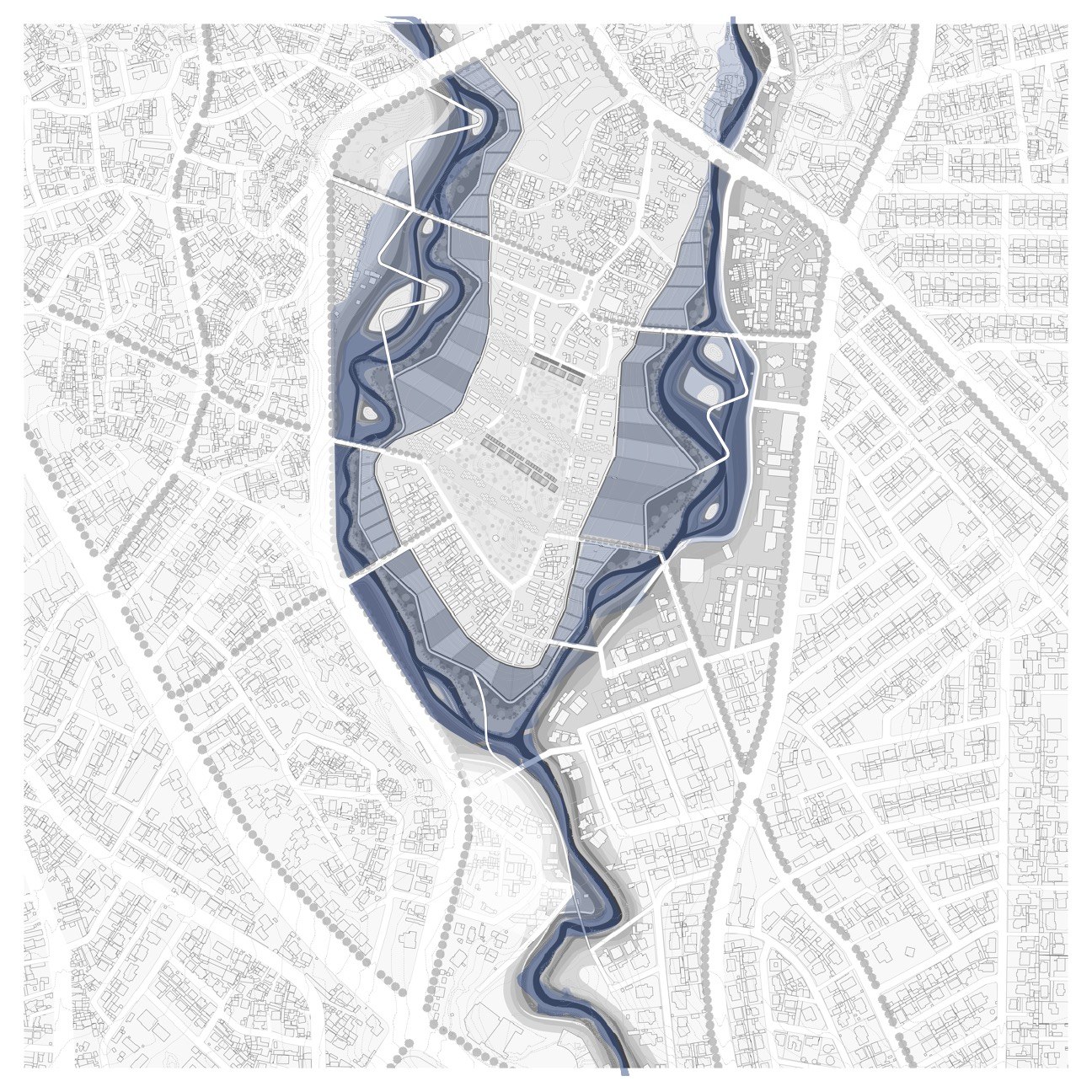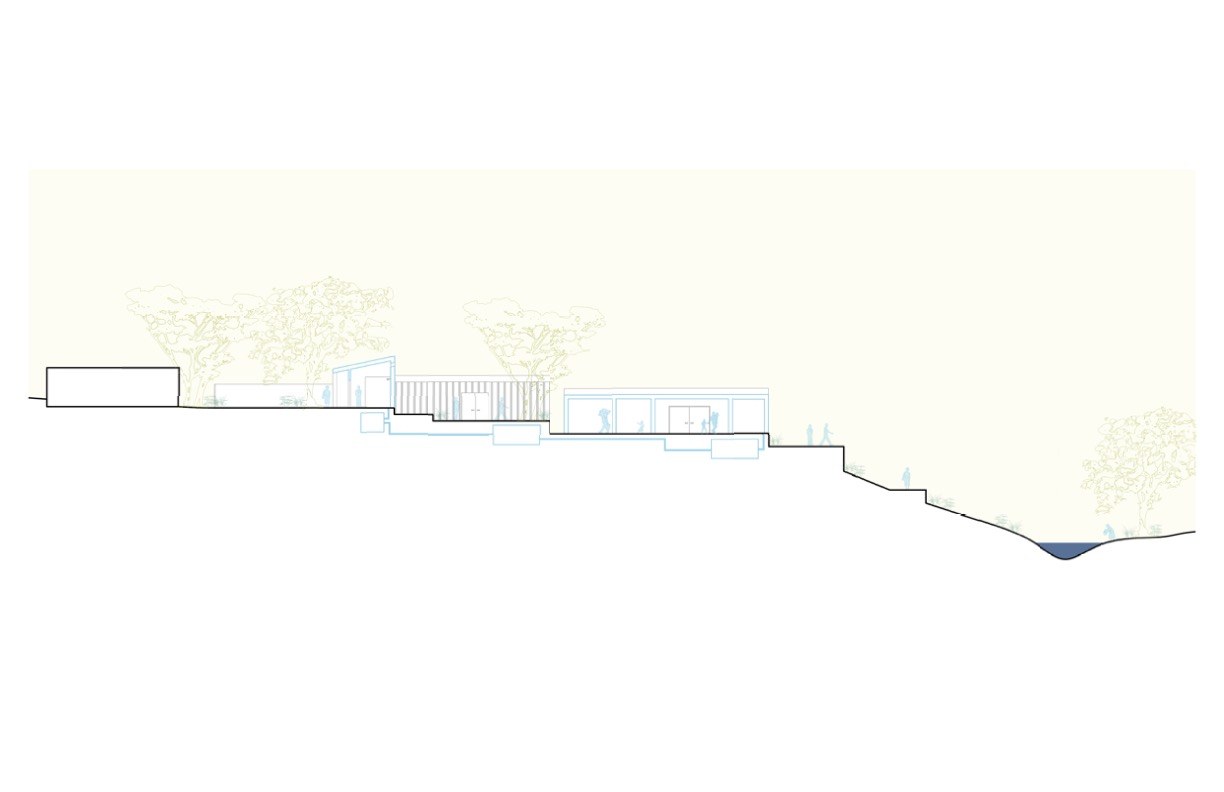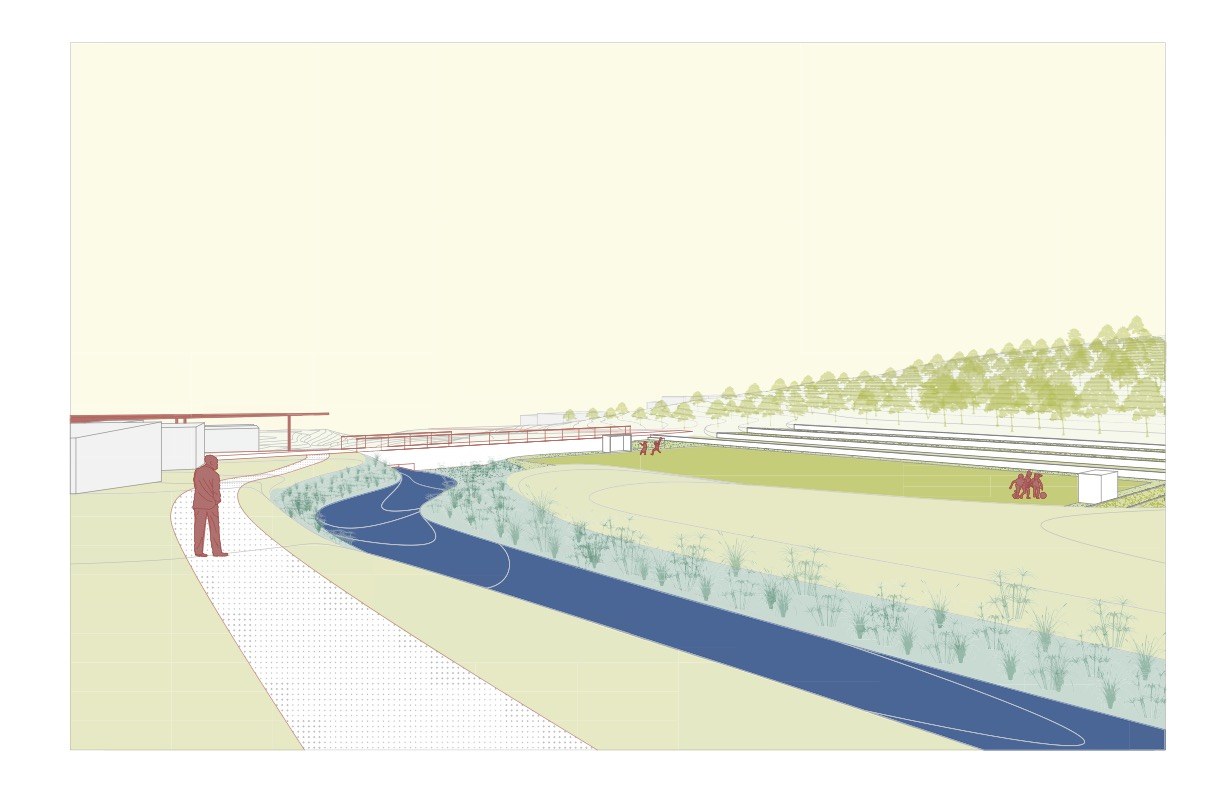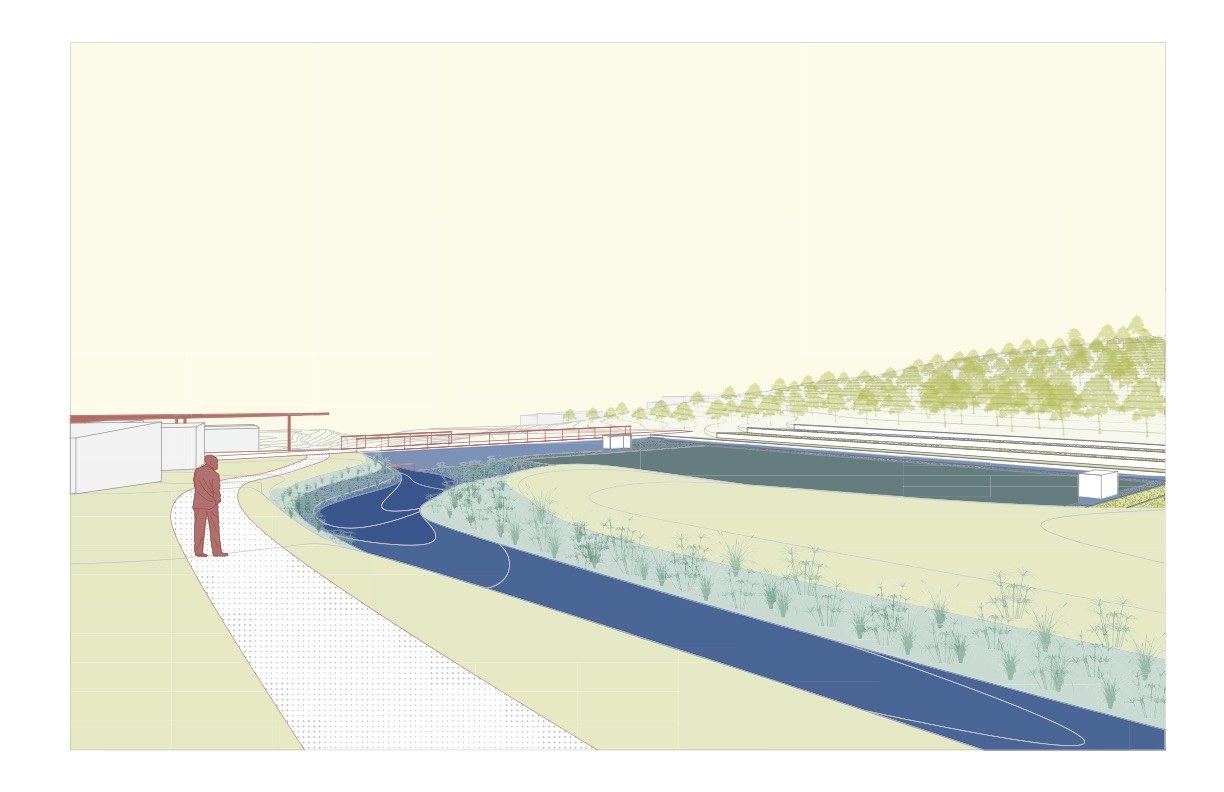Thesis Highlights
Addis Ababa River City
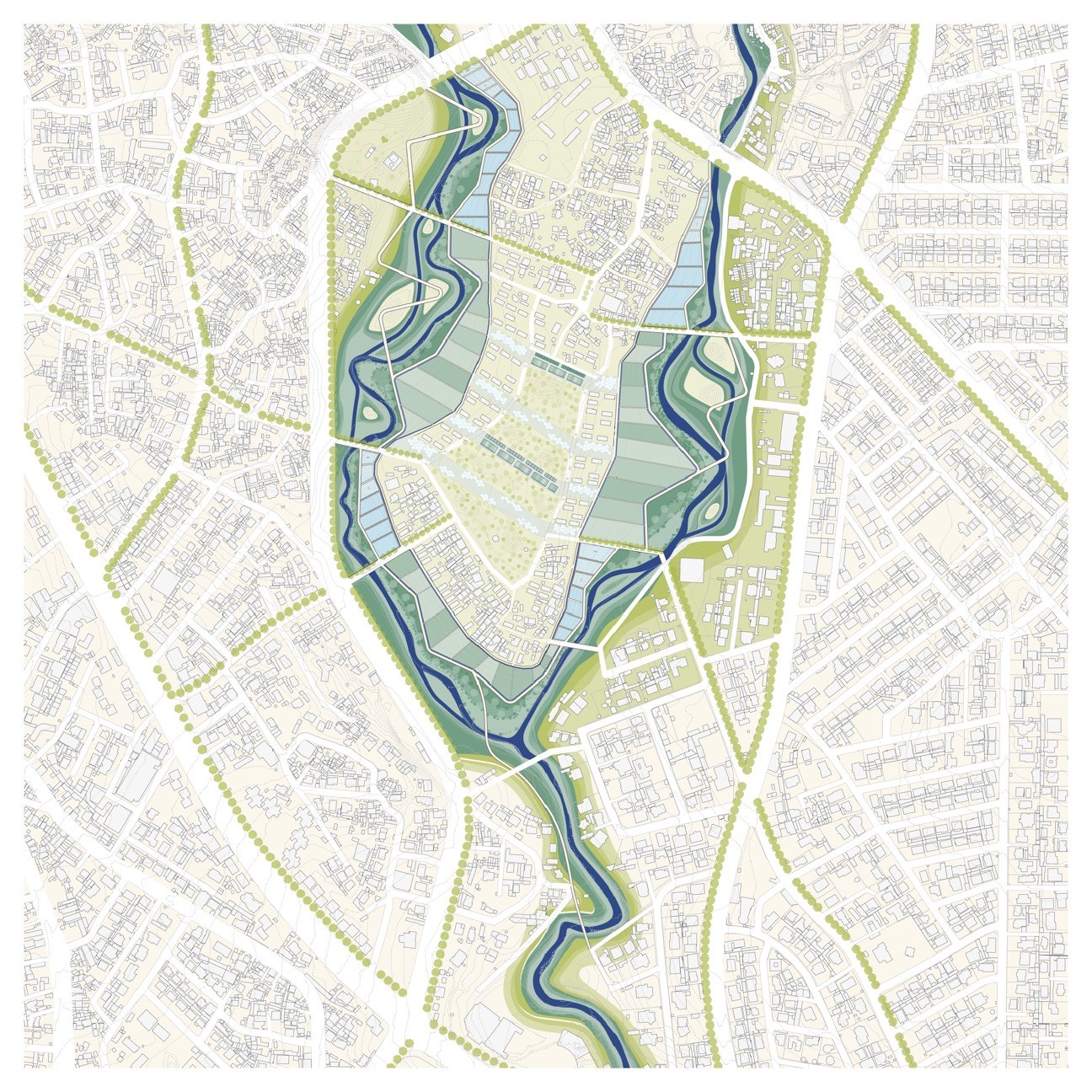
Addis Ababa has rapidly evolved from a small military outpost to a sprawling metropolis and has doubled its population to over 4 million in recent years. This unprecedented demographic boom has brought not only uncontrolled urbanization of the city but is also testing the administration's ability to provide basic services to the population: water pollution, water scarcity, flooding, lack of basic infrastructures/facilities… If these urban issues are not addressed in the present, climate change will be added to the continuous growth of the population, and both will exacerbate the already present problems.
This academic research aims to design a holistic urban resilience and regenerative strategy for Addis Ababa, whose main elements are the more than 50km of river tributaries that weave the city. For that, the project proposes a new "ecological infrastructure" that uses the rivers as the main element to tackle the city's most urgent challenges and, given the city's morphology, to reach most parts of the population.
The methodology of the project is organized into three different nested scales. The first analyses and diagnoses the city's development from different perspectives. The second scale proposes solutions to the urban issues found in the analysis through a comprehensive strategic plan, in this case, for a specific area: the Upper Kebena River watershed. Finally, the third, and most minor scale, includes specific architectural interventions at the most urgent and significant sites.
The work published here shows the outcomes of the "Addis Ababa River City" research project, an academic program created to address these challenges mentioned above through an urban resilience strategy and architectural design methodology. Together, this body of work demonstrates how to elucidate a holistic understanding of the complex urban realities that Addis Ababa, and many other growing worldwide metropolises, face today and into the future.
WORK
